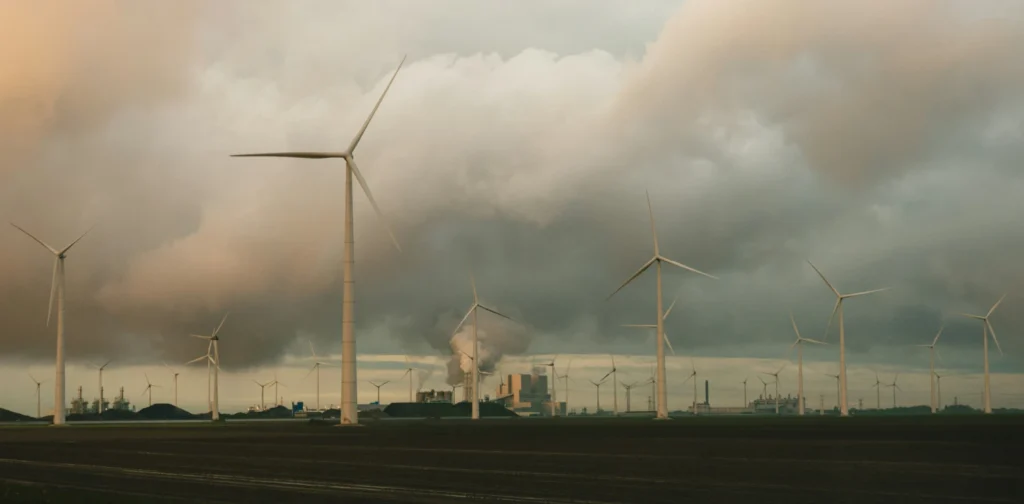Would AZEC’s Decarbonization Efforts Lead to Increased Emissions Instead?

Photo: Tim van der Kuip on Unsplash.
Keeping the global temperature increase below 1.5°C requires partnership and cooperation between countries. In this light, the Asian Zero Emission Community (AZEC) was established to facilitate cooperation to reduce greenhouse gas emissions in Asia, including Indonesia. However, a report by Zero Carbon Analytics reveals that this partnership can potentially increase greenhouse gas emissions in Indonesia instead of reducing it.
Japan-Indonesia Partnerships
AZEC is a cooperation platform pioneered by Japan to achieve carbon neutrality or zero emissions in Asia. The platform was officially launched in 2023 by 11 partner countries, including Indonesia. The country has been involved in the platform’s development as one of the initiators in 2022.
Japan and Indonesia have previously established a firm partnership and collaboration in the energy sector. For instance, Indonesia’s state-owned electricity company PLN has signed several Memorandums of Understanding (MoUs) with Japan. The purposes vary, from receiving funding assistance worth USD 500 million to partnering with Japanese banks and business communities.
Indonesia has signed 43% of the MoUs proposed in the AZEC initiative. However, an assessment from the international research institute Zero Carbon Analytics revealed that many of these agreements could extend fossil fuel use and increase greenhouse gas emissions, defeating their original purposes.
Potential Downside of AZEC Agreements
Of the 158 MoUs signed in AZEC, 56 are related to fossil fuel technologies, such as liquefied natural gas (LNG), ammonia, and carbon capture and storage (CCS). Indonesia agreed to 27 of those documents.
Through the AZEC partnership, Japan has poured millions of US dollars into developing LNG infrastructure in Southeast Asia, such as the Tangguh LNG Project in West Papua and the Abadi LNG in Masela, Maluku. However, the report highlights that converting natural gas into liquid can produce large amounts of methane, aggravating global warming.
Furthermore, the report also highlights the use of ammonia co-firing—burning ammonia and coal for power generation—which can be used as the basis for the government to continue operating steam-electric power plants (PLTU). Many Japanese companies have proposed initiatives to encourage ammonia co-firing in various power plants across the country, which have negatively impacted the health and wellbeing of the surrounding communities and their livelihoods, as well as produced large amounts of waste. Additionally, this practice is considered more expensive and has had multiple cases of failure so far, indicating that ammonia is not the most suitable option for decarbonization.
Meanwhile, CCS has also been widely seen to offer a ‘false solution’ due to its dubious effectiveness in reducing emissions. However, many agreements made under AZEC have been shown to support CCS projects, especially in the oil and gas sector.
Besides the report by Zero Carbon Analytics, the local civil society group WALHI also criticized the agreements for the use of technologies that support fossil fuels. WALHI also emphasized the non-transparent implementation of AZEC and the threats of land and sea grabbing, deforestation, environmental damage, and human rights violations in various projects agreed upon by Indonesia and Japan.
Partnerships for Just Energy Transition
Collaborative efforts between countries are indeed crucial to achieving net zero emissions. However, countries must ensure that these efforts are not performative and do not indicate greenwashing.
The government of Indonesia must rearrange the priorities in decarbonization policies so that both the energy sources and the technologies used are truly sustainable and are the best alternatives to stopping the use of fossil energy. Additionally, it is important to ensure the participation of Indigenous Peoples, local communities, and civil society groups to ensure just and inclusive energy transition efforts.
Editor: Abul Muamar & Nazalea Kusuma
Translator: Kresentia Madina
The original version of this article is published in Indonesian at Green Network Asia – Indonesia.

Co-create positive impact for people and the planet.
Amidst today’s increasingly complex global challenges, equipping yourself, team, and communities with interdisciplinary and cross-sectoral insights on sustainability-related issues and sustainable development is no longer optional — it is a strategic necessity to stay ahead and stay relevant.


 Strengthening Resilience amid Growing Dependence on Space Infrastructure
Strengthening Resilience amid Growing Dependence on Space Infrastructure  Indian Gig Workers Push Back Against 10-Minute Delivery Service Strain
Indian Gig Workers Push Back Against 10-Minute Delivery Service Strain  Call for Governance: Grassroots Initiatives Look to Scale Efforts to Conserve Depleting Groundwater
Call for Governance: Grassroots Initiatives Look to Scale Efforts to Conserve Depleting Groundwater  Integrating Environment, Climate Change, and Sustainability Issues into Education Systems
Integrating Environment, Climate Change, and Sustainability Issues into Education Systems  Finally Enforced: Understanding the UN High Seas Treaty
Finally Enforced: Understanding the UN High Seas Treaty  Risks and Opportunities of Submarine Communication Cables for Sustainable Development
Risks and Opportunities of Submarine Communication Cables for Sustainable Development